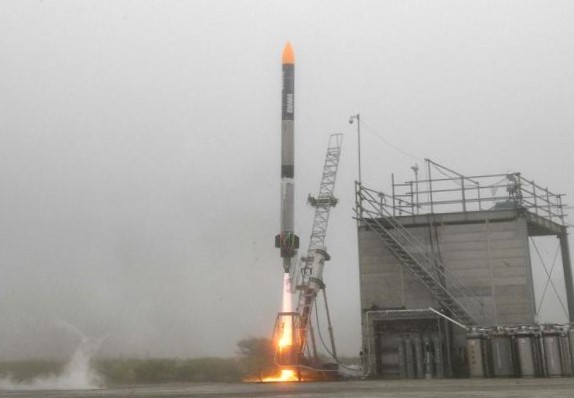
MOMO v0
In-activeInterstellar Technologies (ISTECH)
July 30, 2017
Description
Momo is a Japanese sounding rocket capable of delivering 20 kg to a height of 100 km. It is privately developed by Interstellar Technologies Inc. (IST). The single stage Momo is powered by a pressure-fed engine fueled with ethanol and liquid oxygen. The engine is gimbaled for steering, with cold gas thrusters providing roll control. Momo v0 was replaced by v1 in 2021.
Specifications
-
Stages
1 -
Length
9.9 m -
Diameter
0.5 m -
Fairing Diameter
― -
Launch Mass
1.0 T -
Thrust
12.0 kN -
Apogee (Sub-Orbital)
100.0 km
Family
-
Name
MOMO v0 -
Family
― -
Variant
v0 -
Alias
― -
Full Name
MOMO v0
Payload Capacity
-
Launch Cost
― -
Low Earth Orbit
― -
Geostationary Transfer
Orbit
― -
Direct Geostationary
― -
Sun-Synchronous Capacity
―
Interstellar Technologies
Commercial
President: Takahiro Inagawa
ISTECH 2005Interstellar Technologies, Inc. (Japanese: インターステラテクノロジズ(株) Hepburn: Intāsutera Tekunorojizu (kabu)) is a Japanese NewSpace company. It is a rocket spacelaunch company developing the MOMO launcher. Its stated goal is to reduce the cost of access to space. In 2017, it became the first Japanese company to launch a privately developed space rocket, though the launch was unsuccessful. The company plans to complete a rocket by 2020 that would be capable of launching small satellites into orbit.
MOMO | Flight 5
Interstellar Technologies | JapanHokkaido Spaceport, Japan
June 13, 2020, 8:15 p.m.
MOMO | Flight 4
Interstellar Technologies | JapanHokkaido Spaceport, Japan
July 27, 2019, 7:20 a.m.
Status: Launch Failure
Mission:
The Momo-4 rocket will carry a research device developed by Kochi University of Technology and release a paper plane in space as part of an experiment proposed by Castem Co., a precision parts manufacturer based in Fukuyama, Hiroshima Prefecture, that provided some of the funding for the project.
SuborbitalMOMO | Flight 3
Interstellar Technologies | JapanHokkaido Spaceport, Japan
May 4, 2019, 8:45 p.m.
Status: Launch Successful
Mission:
Flight duration : 515 seconds. Maximum altitude : 113.4 km. Downrange : 37 km from the launch site. This was the first successful attempt following two consecutive failures for the previous MOMO series, and has provided valuable telemetry data for further development within IST.
SuborbitalMOMO | Launch 2
Interstellar Technologies | JapanHokkaido Spaceport, Japan
June 29, 2018, 8:30 p.m.
Falcon 9
Starlink Group 10-41
Space Launch Complex 40 - Cape Canaveral SFS, FL, USAA batch of 29 satellites for the Starlink mega-constellation - SpaceX's project for space-based Internet communication system.
Falcon 9
Starlink Group 17-23
Space Launch Complex 4E - Vandenberg SFB, CA, USAA batch of 25 satellites for the Starlink mega-constellation - SpaceX's project for space-based Internet communication system.
Electron
That's Not A Knife (DART AE)
Rocket Lab Launch Complex 2 (Launch Area 0 C) - Wallops Flight Facility, Virginia, USAPayload is a scramjet-powered hypersonic vehicle developed by by Australian company Hypersonix.
Falcon 9
Starlink Group 6-108
Space Launch Complex 40 - Cape Canaveral SFS, FL, USAA batch of 29 satellites for the Starlink mega-constellation - SpaceX's project for space-based Internet communication system.
Falcon 9
Starlink Group 17-26
Space Launch Complex 4E - Vandenberg SFB, CA, USAA batch of 25 satellites for the Starlink mega-constellation - SpaceX's project for space-based Internet communication system.

